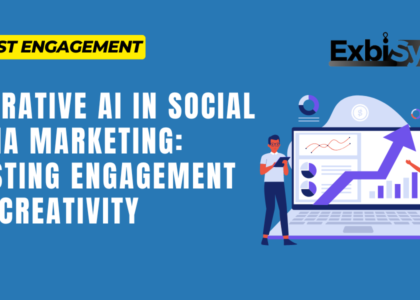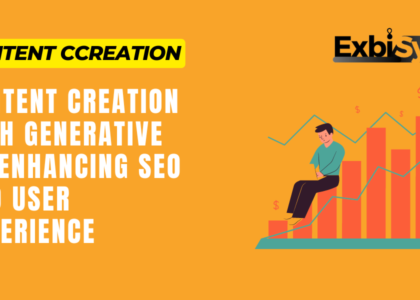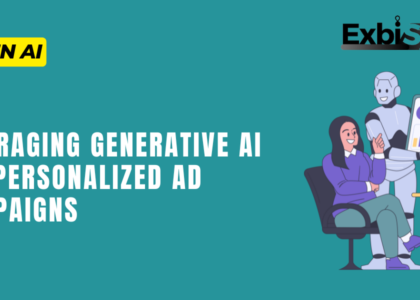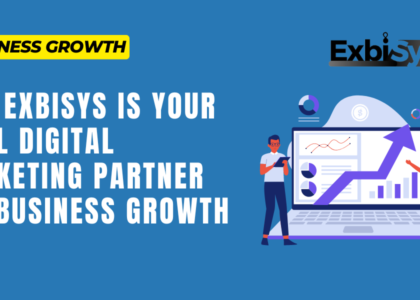Email marketing remains one of the most effective tools for businesses to engage with their audience, nurture leads, and drive conversions. However, the increasing demand for personalization, relevance, and timely engagement has made email marketing a complex task. This is where Generative AI steps in, offering a transformative approach to automating email marketing processes and enhancing both efficiency and effectiveness.
In this article, we will explore how Generative AI is revolutionizing email marketing automation, its key applications, and the benefits it brings to businesses looking to optimize their email campaigns.
1. What is Generative AI in Email Marketing?
Generative AI is a form of artificial intelligence that uses machine learning models, particularly Natural Language Processing (NLP) and Natural Language Generation (NLG), to generate human-like text and content. In email marketing, Generative AI automates the creation of personalized email copy, subject lines, offers, and even email flows based on user data and behavior.
The integration of AI into email marketing automation tools has streamlined many aspects of campaign management, including audience segmentation, content generation, and performance optimization. This not only saves time but also ensures that emails are personalized at scale and delivered to the right audience at the right time.
2. Key Applications of Generative AI in Email Marketing
A. Personalized Email Content Creation
Personalization is at the heart of successful email marketing campaigns, and Generative AI allows marketers to scale personalized content creation effortlessly. AI algorithms analyze user data, such as browsing behavior, purchase history, preferences, and demographics, to create tailored email content for each recipient.
For instance, Generative AI can craft personalized product recommendations, targeted offers, and relevant messaging based on an individual user’s past interactions with a brand. This level of personalization enhances engagement, improves click-through rates, and increases the chances of conversion.
B. Automating Subject Line Generation
The subject line is one of the most critical elements of an email, as it directly impacts the open rate. Generative AI can automatically generate compelling, relevant, and personalized subject lines that resonate with each recipient. By using data on past user interactions, AI can create subject lines optimized for engagement based on what has worked well with similar audience segments.
For example, an AI tool may generate different subject lines for users based on their activity. A customer who abandoned their cart may receive a subject line like “Forgot Something? Complete Your Purchase for 10% Off,” while a returning customer might see “Welcome Back! Check Out New Arrivals Just for You.”
C. Dynamic Email Content and Personalization
Generative AI can create dynamic content within emails that changes based on user behavior in real-time. For example, an email sent to a customer browsing a particular product category may feature personalized recommendations from that category. Similarly, emails can display different offers based on geographic location, purchase history, or even the weather.
This dynamic approach to content personalization ensures that emails are always relevant to the recipient and can adapt to their changing preferences or circumstances.
D. Automating Drip Campaigns and Workflows
Drip campaigns are a series of automated emails sent to prospects or customers at predetermined intervals, based on their actions. Generative AI can help design and automate these workflows by determining the best content to send at each stage of the customer journey.
For example, after a user signs up for a newsletter, the AI can create and send an introductory email, followed by a series of emails that nurture the lead with personalized content, product recommendations, and educational resources. AI optimizes the timing and frequency of these emails, ensuring that they are neither too intrusive nor too infrequent.
E. A/B Testing and Optimization
Traditionally, A/B testing involves manually creating different versions of an email to test which one performs better. Generative AI automates this process by generating multiple variations of subject lines, copy, images, and CTAs. It can also test these variations in real-time, analyzing engagement metrics such as open rates, click-through rates, and conversions to identify the best-performing content.
Once the AI identifies the top-performing version, it can automatically scale that version to the rest of the email list, ensuring optimal results without manual intervention.
3. Benefits of Using Generative AI in Email Marketing Automation
A. Scalability and Efficiency
One of the biggest challenges for marketers is scaling personalized content without overwhelming their resources. Generative AI solves this by automating the creation of individualized content at scale. Whether sending out 100 or 100,000 emails, AI can generate unique, relevant content for each recipient, significantly reducing the time and effort required to manage large campaigns.
B. Enhanced Personalization
Generative AI allows businesses to move beyond basic segmentation and deliver truly personalized experiences. By analyzing vast amounts of data and generating tailored content, AI ensures that each email feels personal and relevant to the recipient, improving customer engagement and satisfaction.
C. Improved Open and Click-Through Rates
Emails that are personalized and relevant are more likely to be opened and engaged with. AI’s ability to craft subject lines, dynamic content, and CTAs based on individual preferences results in higher open rates and click-through rates. Additionally, AI-powered A/B testing optimizes email performance by identifying the best variations and scaling them automatically.
D. Cost-Effectiveness
Automating email content creation and workflows with Generative AI reduces the need for extensive human resources. This makes it a cost-effective solution for businesses of all sizes. AI can also analyze past campaigns and provide insights that lead to more efficient use of marketing budgets, focusing efforts on strategies that generate the highest ROI.
E. Real-Time Adaptation
Generative AI can adapt email content in real-time based on user behavior, making it more responsive to recipient actions. For example, if a user clicks on a particular product, AI can immediately trigger a follow-up email with similar recommendations or offers, increasing the chances of a sale.
4. Real-World Examples of Generative AI in Email Marketing
A. E-Commerce Personalization
An e-commerce brand can use Generative AI to send personalized emails featuring products based on a user’s recent browsing history. If a customer frequently shops for athletic gear, the AI can automatically generate emails showcasing new arrivals in the sportswear category or offer exclusive discounts.
B. Lead Nurturing for B2B
For B2B companies, AI-driven email marketing can create customized content for different stages of the buyer’s journey. After a potential client downloads a whitepaper, the AI system can generate follow-up emails offering case studies, product demos, or personalized consultations based on the client’s industry or business needs.
C. Event-Based Marketing
Generative AI can be used for event-based marketing campaigns, where emails are triggered by specific actions or dates, such as a customer’s birthday or anniversary of their first purchase. AI tools can craft unique, celebratory emails with personalized offers, enhancing customer loyalty and engagement.
5. Challenges and Ethical Considerations
A. Balancing Automation with Authenticity
While AI can create impressive personalized content, businesses must ensure that their emails maintain a human touch. Over-reliance on automation can lead to emails feeling overly mechanical or insincere, so it’s essential to strike a balance between AI-generated content and human oversight.
B. Data Privacy
Personalization relies heavily on user data, which raises concerns about privacy and compliance with regulations like GDPR and CCPA. Marketers must ensure they are collecting and using data responsibly, providing transparency to users about how their information is being utilized.
C. Quality Control
While AI can generate content quickly, it may occasionally produce errors or awkward phrasing. Regular quality checks are necessary to ensure that AI-generated emails align with the brand’s tone and messaging standards.
Conclusion
Generative AI is reshaping the landscape of email marketing by enabling businesses to automate and personalize their campaigns at scale. From creating dynamic content and personalized subject lines to optimizing drip campaigns and automating A/B testing, AI-driven email marketing automation enhances efficiency, engagement, and performance.
As more businesses adopt this technology, the key to success lies in blending AI’s powerful automation capabilities with a human touch, ensuring that every email resonates with the recipient on a personal level. By leveraging Generative AI, marketers can create more effective, data-driven campaigns that deliver measurable results while saving time and resources.





